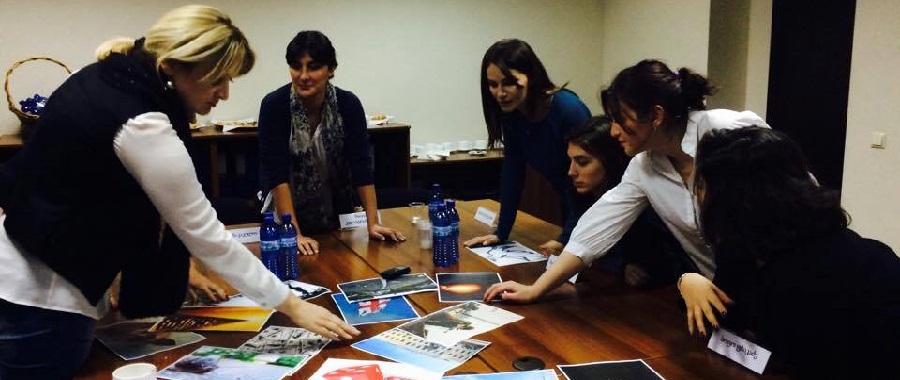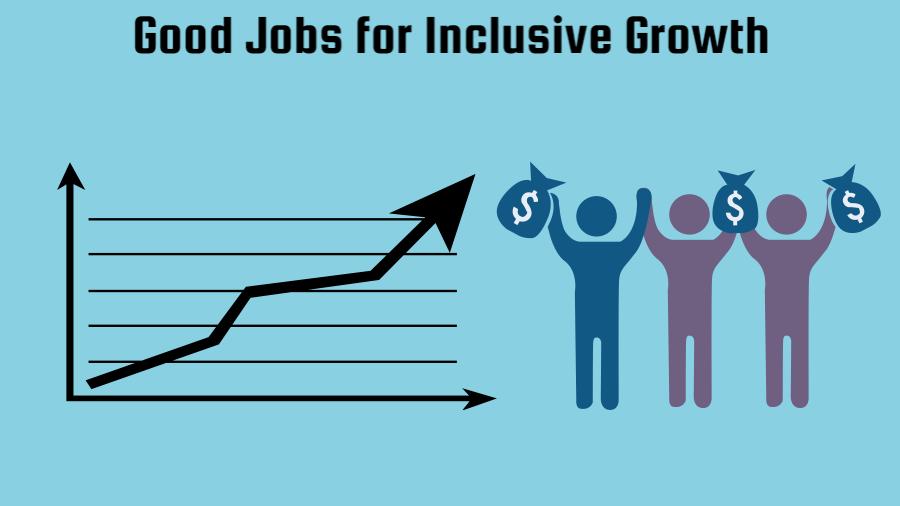Governance and Social Policy Projects


The project is aimed at providing a useful basis for the development of the new Cooperation Programme on how to best address the inclusion of vulnerable social groups. The study will help in the formation of decisions over any needed program adjustments and target groups in order to achieve better outcomes of the future Cooperation Program.
Read more
The proposed project aims at strengthening entrepreneurial education and training in formal TVET system in Georgia.
Read more
The Education Policy Forum (EPF) will generate a debate and communicate critical analyses regarding the government priorities and investments in education.
Read more
Conducting Focus Group Interviews for Pension Reform Communication Strategy Development in Tbilisi and in regions to provide insights into how people think and understand new pension reform.
Read more
An ISET-PI team led by EEPRC’s Head Norberto Pignatti is conducting a Regulatory Impact Assessment (RIA) of the pension reform currently discussed in Georgia.
Read more
This project implements Hierarchical Linear Modeling and identifies determinant factors for mathematics test results in Georgia.
Read more
The study aims at offering recommendations to improve Asian Development Bank and other development partners; assistance to developing countries in creating conditions to enable inclusive growth through their projects and operations. For that ISET Policy Institute will conduct in-depth analysis on income distribution, labor market, and other aspects of inclusive growth.
Read more
The project analyzes the connection between knowledge gaps and production outcomes and structural and social change in Georgian agriculture. The potential impact of agricultural extension and training efforts as well as capital relief measures are estimated econometrically, and recommendations are given whom to target with these policy interventions.
Read more
As of 2012, there were 37000 families in Georgia qualified as environmental migrants (eco-migrants) and in need of resettlement. Despite the scale of the problem, there is no proper legal and institutional setup in Georgia aimed at securing basic human rights of eco-migrants and reducing the adverse consequences caused by environmental factors. In response to this problem, Mr. Lanchava was requested to develop a policy paper in partnership with CENN. The paper aims on supporting initiation and successful systemic reform implementation in the field of eco migration in Georgia via strengthening the capacities of the civil society actors and enhancing structured and inclusive multi-stakeholder dialogue at the national and regional levels.
Read more
Starting from 2005, Georgia saw a rapid decline in tertiary gross enrollment. This project outlines the potential reasons behind decreasing enrollment rates and discusses the role of institutional changes, wages, returns to education, external and international migration, and employment patterns. We expose the role of liquidity constraints in limiting access to higher education for the poorest segment of Georgian population.
Read more
Starting in 2006, the Ministry of Education and Science of Georgia, in collaboration with the United Nations Development Program (UNDP), established vocational education in seven Georgian towns. Nowadays, there are plenty of colleges offering vocational training programs that emphasize applied knowledge in fields like agronomy, veterinary sciences, and bee-keeping. While promising on a general level, it is not clear whether the program successfully addresses the human capital needs of the agricultural sector.
Read more
It is well documented that Georgia's labor market is plagued by a skills mismatch: the supply of labor does not properly reflect employers demand in terms of both professional qualifications and work ethic (see, for example, the 2013 Global Competitiveness Report). This results, on the one hand, in very high unemployment (particularly among Georgian young) and low capital productivity, on the other.
Read more
The main purpose of the consultancy was to contribute to the elaboration of the Population Situation Analysis (PSA) section on Socio-Economic Context in Georgia. The Government of Georgia (GOG) and the Prime Minister have announced addressing demographic challenges as a top priority of the country. UNFPA was asked to support undertaking the Population Situation Analysis (PSA) in Georgia, in order to generate evidence regarding demographic situation that would be further used for elaboration of the Demographic Strategic Plan for Georgia.
Read more
The project aims to revise the Needs Index and upgrade it to better reflect current reality. ISET Policy Institute was contracted by UNICEF to revise the Needs Index and upgrade it to reflect current reality. Ministry of Health, Labour and Social Affairs of Georgia, the Social Service Agency and UNICEF are in the process of refining the social service protection system in Georgia to make it more child sensitive. The current system uses sophisticated methodology of calculating the score of the household which applies for the assistance to the socially Unprotected Families.
Read more
The objective of the project was to produce a pilot RIA on the draft Code on Spatial Planning and Construction in order for the regulators to make an informed decision.The project included a training phase to build the capacity of ISET Policy Institute (and two other Georgian organizations) to perform Regulatory Impact Assessment (RIA). The ISET-PI team performed a pilot RIA on the draft Spatial Planning and Construction code.
Read more
The consultancy aimed to identify training programs that addresses actual labor market demand and devise an algorithm for matching the unemployed with these programs taking account of their skills, work experience and motivation. As part of this project, ISET-PI aimed to identify vocational training programs that address actual labor market demand, and devise an algorithm to assign registered unemployed to these programs (taking account of their skills, work experience and motivation).
Read more
In Georgia, there is a clear policy trade-off between having smaller local self-government units (LSGs), which would be closer to voters and service users, and the higher overall costs of a larger number of LSGs. In November, 2012, the Georgian Ministry of Regional Development and Infrastructure (MRDI) began to design a major policy initiative to reform the existing system of sub-national government in Georgia. One element of this initiative is a territorial reform to increase the number of city/municipal governments. The objective is to support better local governance by creating new cities and dividing existing municipalities into smaller units.
Read more
The objective of the study was to conduct detailed analysis of the existing funding mechanisms of early learning in Georgia, do a costing of alternative models of provision per child, develop and suggest sustainable financial and legal scenarios, relevant in the Georgian context. ISET-PI was commissioned by UNICEF to design and assess the costing of alternative finance strategies for preschool education in Georgia.
Read more
Implemented as part of a larger international study, this Georgia country study assessed the consequences of increased migration as a result of possible changes in the EU migration policies with regard to the Eastern Partnership countries. Partnering with the Center for Social and Economic Research (CASE), the ISET Policy Institute (ISET-PI) has embarked upon a country study of Georgia for a project titled The Costs and Benefits of Labour Mobility between the EU and the Eastern Partnership Partner Countries.
Read more
Understanding the Puzzle of Informal Employment in Georgia.Implemented in partnership with the Institute for the Study of Labor (IZA), this research project seeks to analyze the links between informal and formal labor markets in Georgia, providing an opportunity to assess the impact of changes in labor legislation introduced as part of the effort to approximate Georgia's legal and regulatory environment to that of the EU.
Read more
Migration both forced and voluntary has dramatically affected the former Soviet republic of Georgia in recent decades. The study addresses the increasing interest in the question of how migration affects the country. International School of Economics at TSU (ISET) and the Caucasus Research Resource Centers (CRRC) have been awarded a grant from the Global Development Network (GDN) to carry out a migration study.
Read more
Understanding the Puzzle of Informal Employment in Georgia.Implemented in partnership with the Institute for the Study of Labor (IZA), this research project seeks to analyze the links between informal and formal labor markets in Georgia, providing an opportunity to assess the impact of changes in labor legislation introduced as part of the effort to approximate Georgia's legal and regulatory environment to that of the EU.
Read more
The project is aimed at providing a useful basis for the development of the new Cooperation Programme on how to best address the inclusion of vulnerable social groups. The study will help in the formation of decisions over any needed program adjustments and target groups in order to achieve better outcomes of the future Cooperation Program.
Read more
The proposed project aims at strengthening entrepreneurial education and training in formal TVET system in Georgia.
Read more
The Education Policy Forum (EPF) will generate a debate and communicate critical analyses regarding the government priorities and investments in education.
Read more
Conducting Focus Group Interviews for Pension Reform Communication Strategy Development in Tbilisi and in regions to provide insights into how people think and understand new pension reform.
Read more
An ISET-PI team led by EEPRC’s Head Norberto Pignatti is conducting a Regulatory Impact Assessment (RIA) of the pension reform currently discussed in Georgia.
Read more
This project implements Hierarchical Linear Modeling and identifies determinant factors for mathematics test results in Georgia.
Read more
The study aims at offering recommendations to improve Asian Development Bank and other development partners; assistance to developing countries in creating conditions to enable inclusive growth through their projects and operations. For that ISET Policy Institute will conduct in-depth analysis on income distribution, labor market, and other aspects of inclusive growth.
Read more
The project analyzes the connection between knowledge gaps and production outcomes and structural and social change in Georgian agriculture. The potential impact of agricultural extension and training efforts as well as capital relief measures are estimated econometrically, and recommendations are given whom to target with these policy interventions.
Read more
As of 2012, there were 37000 families in Georgia qualified as environmental migrants (eco-migrants) and in need of resettlement. Despite the scale of the problem, there is no proper legal and institutional setup in Georgia aimed at securing basic human rights of eco-migrants and reducing the adverse consequences caused by environmental factors. In response to this problem, Mr. Lanchava was requested to develop a policy paper in partnership with CENN. The paper aims on supporting initiation and successful systemic reform implementation in the field of eco migration in Georgia via strengthening the capacities of the civil society actors and enhancing structured and inclusive multi-stakeholder dialogue at the national and regional levels.
Read more
Starting from 2005, Georgia saw a rapid decline in tertiary gross enrollment. This project outlines the potential reasons behind decreasing enrollment rates and discusses the role of institutional changes, wages, returns to education, external and international migration, and employment patterns. We expose the role of liquidity constraints in limiting access to higher education for the poorest segment of Georgian population.
Read more
Starting in 2006, the Ministry of Education and Science of Georgia, in collaboration with the United Nations Development Program (UNDP), established vocational education in seven Georgian towns. Nowadays, there are plenty of colleges offering vocational training programs that emphasize applied knowledge in fields like agronomy, veterinary sciences, and bee-keeping. While promising on a general level, it is not clear whether the program successfully addresses the human capital needs of the agricultural sector.
Read more
It is well documented that Georgia's labor market is plagued by a skills mismatch: the supply of labor does not properly reflect employers demand in terms of both professional qualifications and work ethic (see, for example, the 2013 Global Competitiveness Report). This results, on the one hand, in very high unemployment (particularly among Georgian young) and low capital productivity, on the other.
Read more
The main purpose of the consultancy was to contribute to the elaboration of the Population Situation Analysis (PSA) section on Socio-Economic Context in Georgia. The Government of Georgia (GOG) and the Prime Minister have announced addressing demographic challenges as a top priority of the country. UNFPA was asked to support undertaking the Population Situation Analysis (PSA) in Georgia, in order to generate evidence regarding demographic situation that would be further used for elaboration of the Demographic Strategic Plan for Georgia.
Read more
The project aims to revise the Needs Index and upgrade it to better reflect current reality. ISET Policy Institute was contracted by UNICEF to revise the Needs Index and upgrade it to reflect current reality. Ministry of Health, Labour and Social Affairs of Georgia, the Social Service Agency and UNICEF are in the process of refining the social service protection system in Georgia to make it more child sensitive. The current system uses sophisticated methodology of calculating the score of the household which applies for the assistance to the socially Unprotected Families.
Read more
The objective of the project was to produce a pilot RIA on the draft Code on Spatial Planning and Construction in order for the regulators to make an informed decision.The project included a training phase to build the capacity of ISET Policy Institute (and two other Georgian organizations) to perform Regulatory Impact Assessment (RIA). The ISET-PI team performed a pilot RIA on the draft Spatial Planning and Construction code.
Read more
The consultancy aimed to identify training programs that addresses actual labor market demand and devise an algorithm for matching the unemployed with these programs taking account of their skills, work experience and motivation. As part of this project, ISET-PI aimed to identify vocational training programs that address actual labor market demand, and devise an algorithm to assign registered unemployed to these programs (taking account of their skills, work experience and motivation).
Read more
In Georgia, there is a clear policy trade-off between having smaller local self-government units (LSGs), which would be closer to voters and service users, and the higher overall costs of a larger number of LSGs. In November, 2012, the Georgian Ministry of Regional Development and Infrastructure (MRDI) began to design a major policy initiative to reform the existing system of sub-national government in Georgia. One element of this initiative is a territorial reform to increase the number of city/municipal governments. The objective is to support better local governance by creating new cities and dividing existing municipalities into smaller units.
Read more
The objective of the study was to conduct detailed analysis of the existing funding mechanisms of early learning in Georgia, do a costing of alternative models of provision per child, develop and suggest sustainable financial and legal scenarios, relevant in the Georgian context. ISET-PI was commissioned by UNICEF to design and assess the costing of alternative finance strategies for preschool education in Georgia.
Read more
Implemented as part of a larger international study, this Georgia country study assessed the consequences of increased migration as a result of possible changes in the EU migration policies with regard to the Eastern Partnership countries. Partnering with the Center for Social and Economic Research (CASE), the ISET Policy Institute (ISET-PI) has embarked upon a country study of Georgia for a project titled The Costs and Benefits of Labour Mobility between the EU and the Eastern Partnership Partner Countries.
Read more
Migration both forced and voluntary has dramatically affected the former Soviet republic of Georgia in recent decades. The study addresses the increasing interest in the question of how migration affects the country. International School of Economics at TSU (ISET) and the Caucasus Research Resource Centers (CRRC) have been awarded a grant from the Global Development Network (GDN) to carry out a migration study.
Read more










